Current Research Projects
|
Application-Network Co-Design for Edge Resource Provisioning
[Project Page]
| |
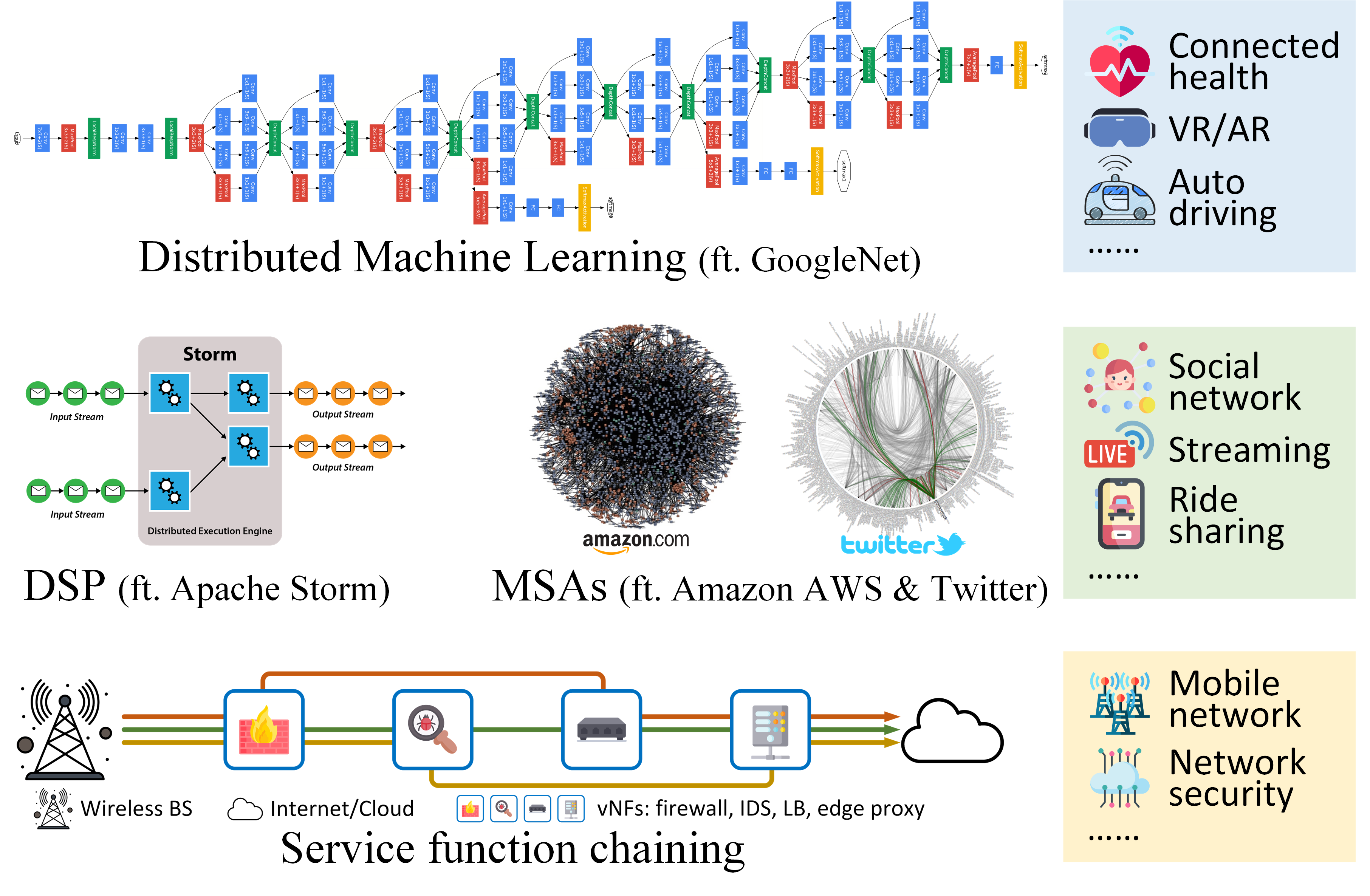 |
Modern distributed computing applications have extremely complex structures. Examples include microservice-based applications such as Twitter, Netflix, Uber, and IoT, which can consist of thousands of microservices, loosely coupled through API calls. Such structural complexity poses significant challenges when these applications are looking to leverage edge computing, our next-gen computing paradigm, which provides low-latency and high-throughput computing proximal to end users. This project addresses the performance issue of large-scale distributed applications by employing an application-network co-design approach: simultaneously configuring computing and networking resources for end-to-end performance guarantee. Two developments will result from this project: the WolfPack, a theoretical framework for app-network co-design optimization; and the WolfBench, a systematic benchmark for app-network co-designed applications in realistic edge computing environments.
This project is supported by NSF CAREER Award #2045539. |
|
Toward High-Performance Quantum Networking with Hybrid Quantum Technology
[Project Page]
| |
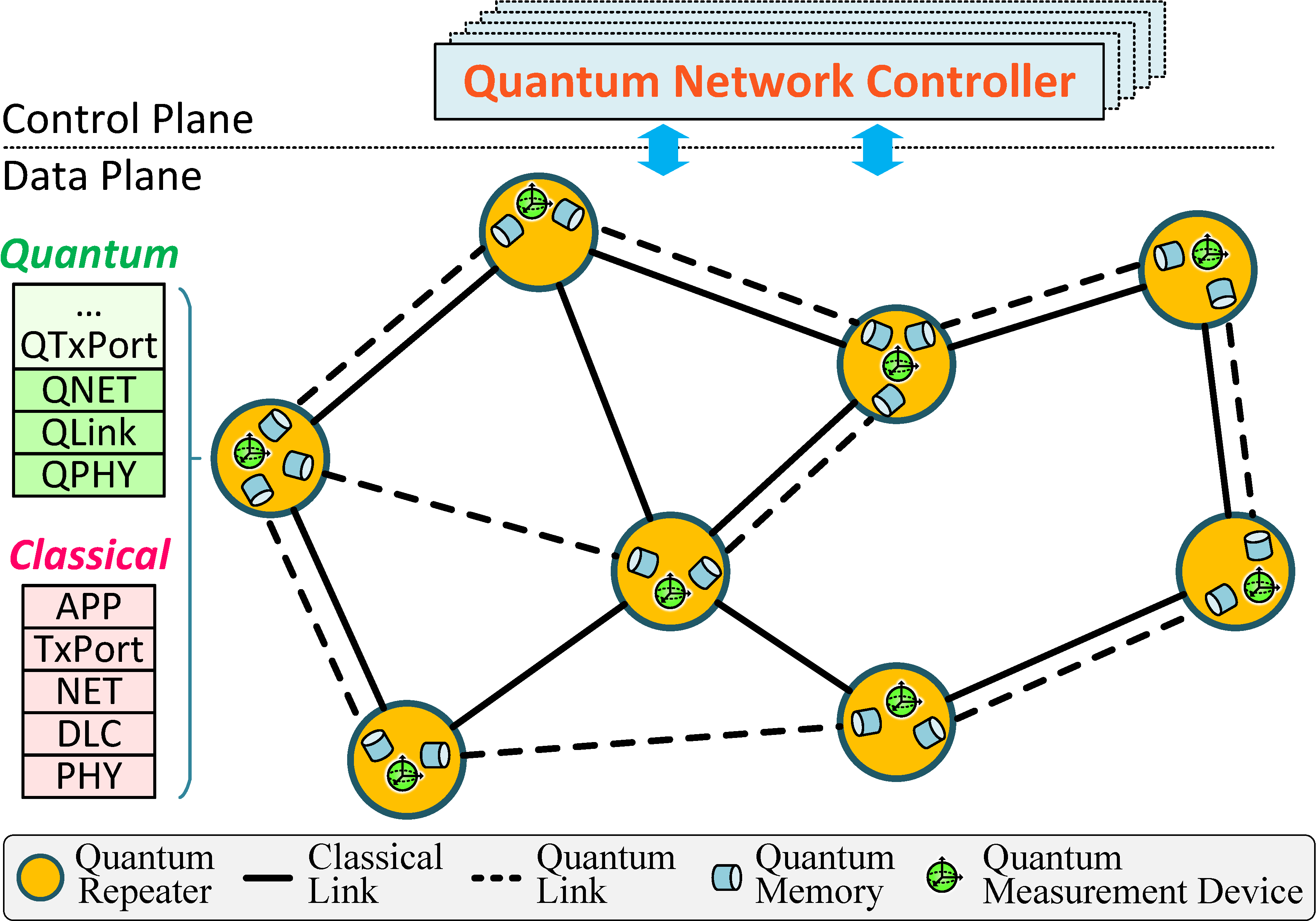 |
Quantum information processing brings fundamental new paradigms for sensing, computing and communication. It will enable foundational innovations in many fields from physics to chemistry, to energy and finance, to secure digital infrastructure, and more. However, the ability to communicate quantum information effectively and efficiently across distance is a crucial pre-requisite for reaping the benefits of many quantum applications, including large-scale quantum computing, distributed quantum sensing and quantum-enhanced (secure) communications. Building on top of recent advances in developing a quantum network along two separate lines, this project will develop a new hybrid architecture that will reap the benefits of both continuous-variable (CV) and discrete-variable (DV) quantum networking, and design algorithms and protocols to enable high-rate and high-fidelity distribution of quantum entanglement resources across long distances and for various future quantum applications. The research will result in concepts and tools to empower the future quantum infrastructure and ecosystem.
This project is supported by NSF Award #2350152. |
|
Democratizing Next-Generation Wireless Access
[Project Page]
| |
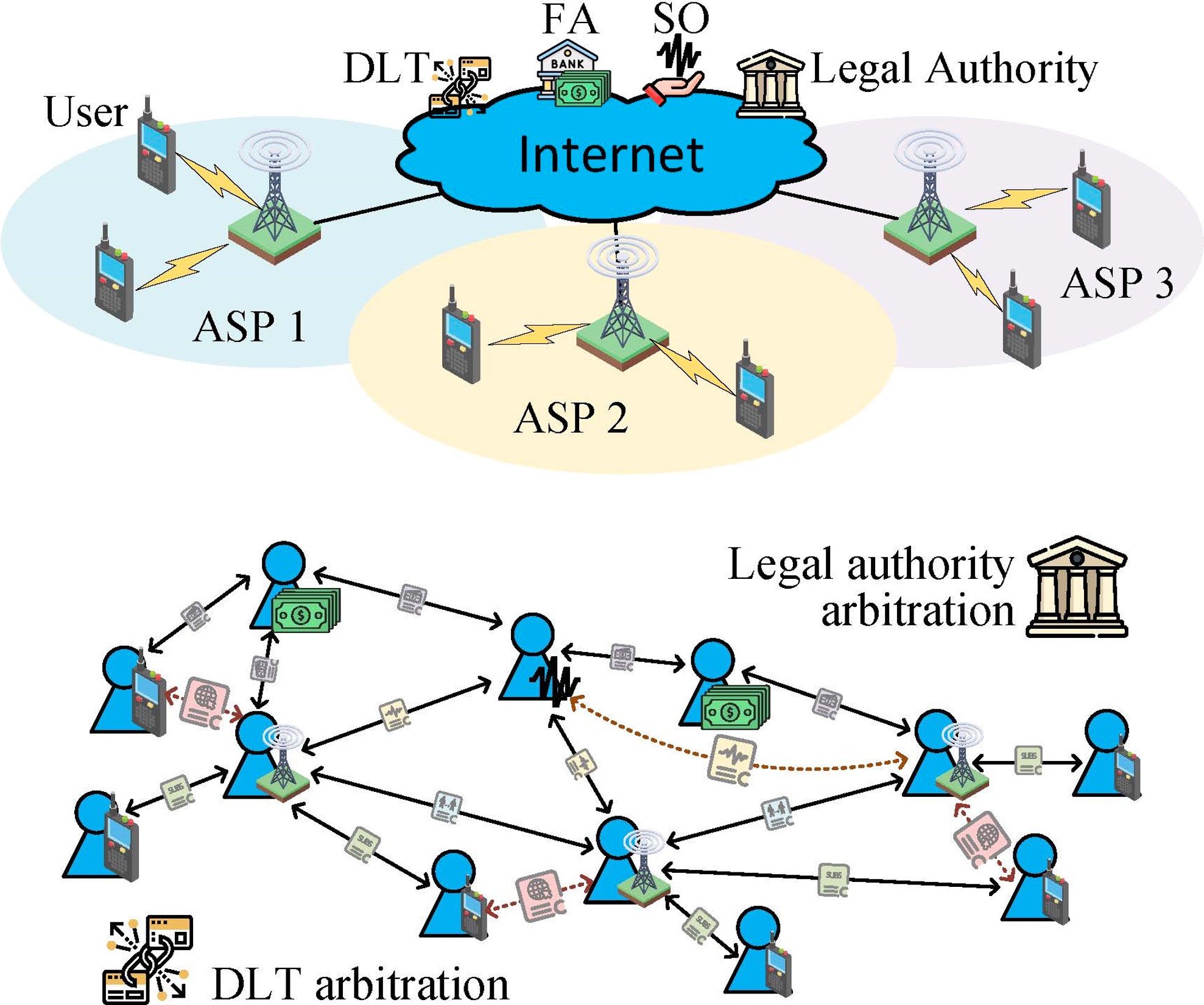 |
The current wireless ecosystem faces the combined challenge of spectrum scarcity and wastage, caused by the closed, centralized business models that benefit more the giants but less the crowd. This project aims to create a democratized wireless access ecosystem using open-source and decentralized technologies, to empower a new wireless future where all are benefited. It seeks to enhance spectrum efficiency, expand Internet availability, and improve reliability by promoting competition and collaboration among service providers. Key goals include fostering trust through transparent contracts, ensuring verifiable service and spectrum sharing, and encouraging diverse stakeholder participation.
This project is supported by NSF Award #2414523. |
|
Robustifying Predictive Intelligence for A New Spectrum Market
[Project Page]
| |
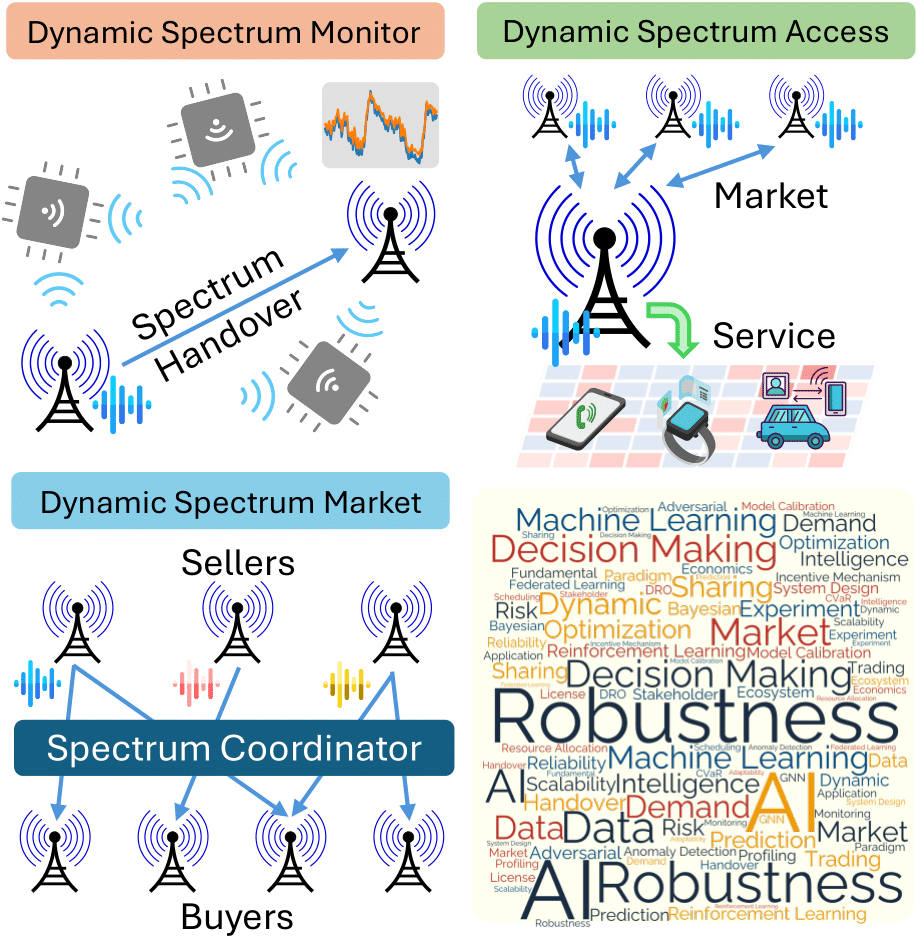 |
New revolutionizing applications are facing an unprecedented shortage of spectrum resources to meet their high demands for wireless access. This calls for a fundamental paradigm shift of the wireless ecosystem from exclusive usage of licensed spectrum to dynamic, market-driven spectrum utilization for the maximum spectrum efficiency. As a pillar technology of the new spectrum market, advanced AI and ML are expected to provide the ever-needed scalability and adaptability for decision making in the new spectrum era. Building on top of the latest advances from machine learning, robust optimization, economic markets and wireless system design, this project designs robust intelligent algorithms for wireless stakeholders to ensure a reliable and resilient wireless infrastructure and ecosystem that can meet the critical requirements of spectrum access for current and future applications.
This project is supported by NSF Award #2433966. |
|
Privacy-Preserving and Trustworthy Decentralized Machine Learning
[Project Page]
| |
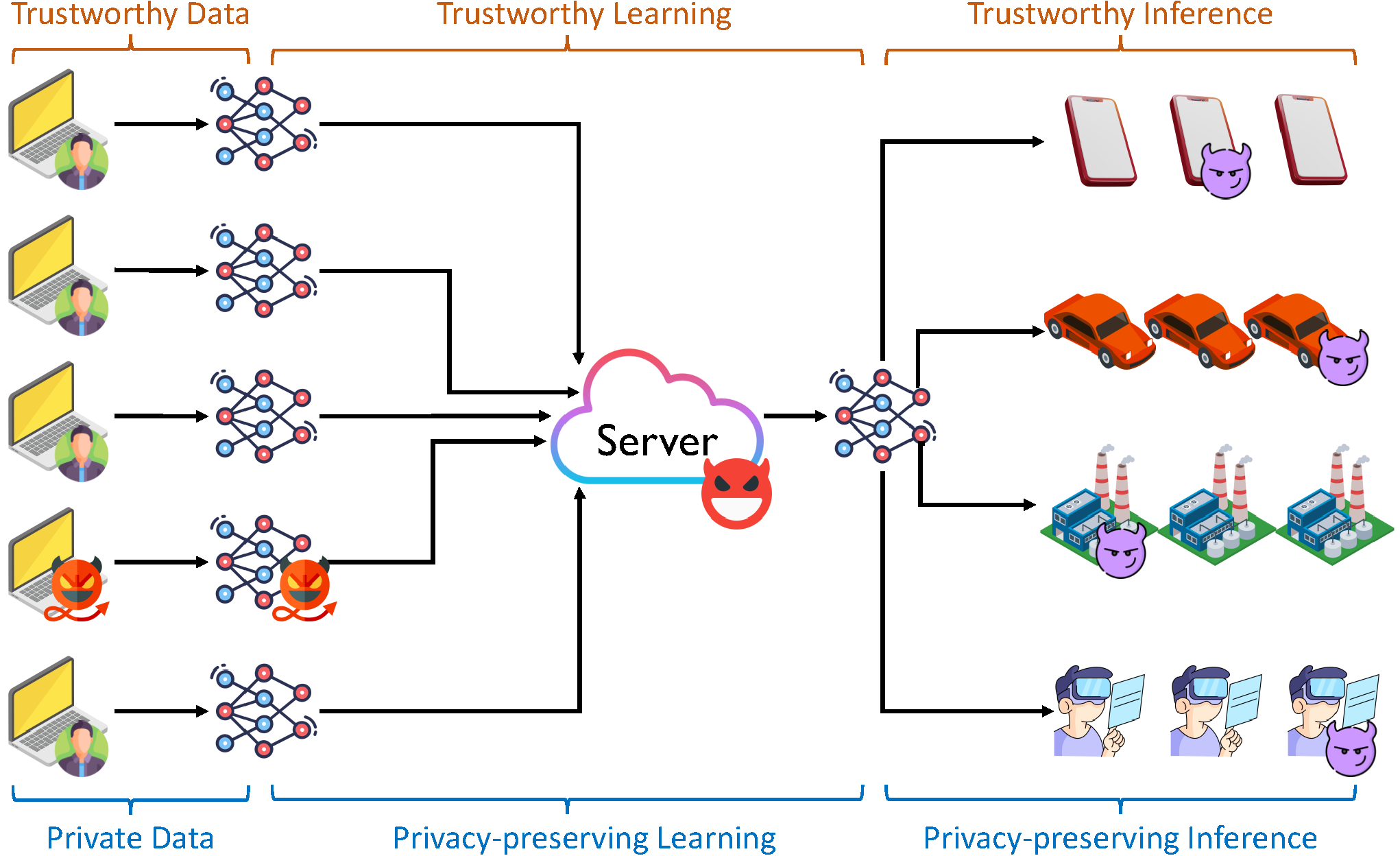 |
Decentralized machine learning such as federated learning has emerged as a novel learning paradigm that enables privacy-preserving learning in a large scale. Nevertheless, decentralized learning systems face practical challenges that significantly hinder their application in real-world scenarios such as smart health or autonomous driving. This project aims to address trustworthiness and privacy preservation in decentralized learning. To address issues such as Byzantine clients or malicious aggregators, this project not only aims to design improved learning algorithms with improved trustworthiness and privacy, but more fundamentally combine learning with robust system design, data analytics, game theory, social trust, risk theory, and cryptography. The goal is to develop a convergence approach for building a trustworthy decentralized learning ecosystem, with tools and methods to support application of decentralized learning in many real-world applications. |
Completed Research Projects
|
Robust SLAs for Mobile Edge Computing Applications
[Project Page]
| |
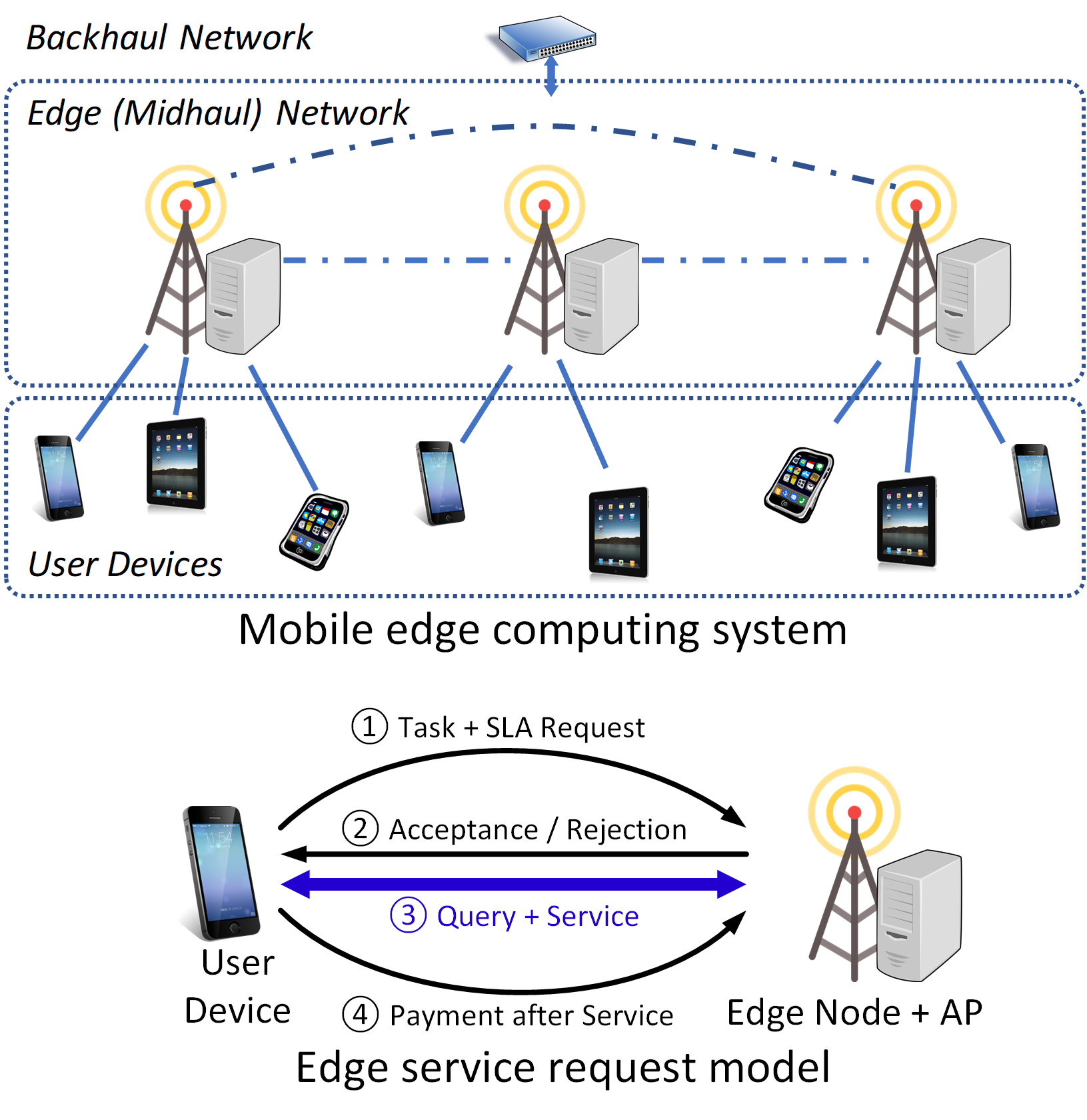 |
Mobile edge computing has emerged to address the long latency, low throughput, and unpredictability of cloud computing for serving modern mobile applications. Nevertheless, the lack of end-to-end performance guarantee in the form of service-level agreements (SLAs) can lead to performance degradation of critical applications during unexpected system dynamics, rendering these applications incompetent or unsafe to use. This project seeks to develop mathematical and systematic tools for edge providers to quantify and control, the risk associated with providing end-to-end SLAs for mobile applications. By designing multi-dimensional resource planning and orchestration algorithms that bound or minimize the risk associated with edge SLAs, this project aims to enable and enhance life-changing edge applications such as autonomous driving and mobile vision, promote investment and expedite development in mobile edge computing, and broaden awareness of risk management from a system perspective.
This project was supported by NSF Award #2007391. |